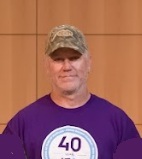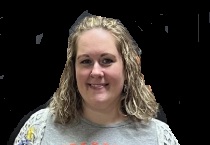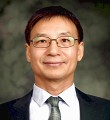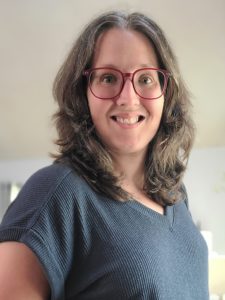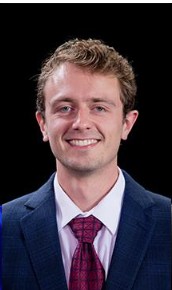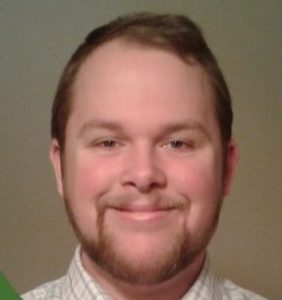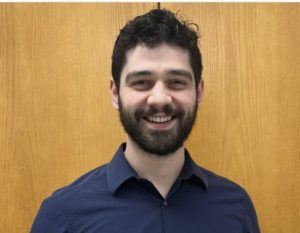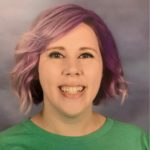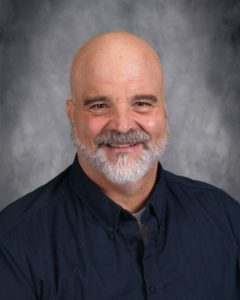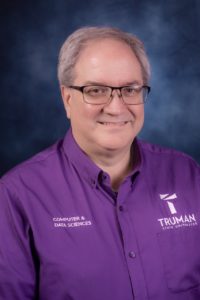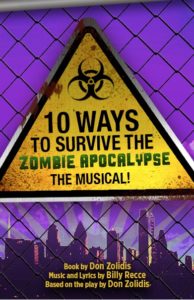Joseph Baldwin Academy
2026 JBA Courses
JBA Session I:
Saturday, June 6 – Friday, June 26, 2026
Debate & media • Speak with impact • Classic to modern
From the Senate floor to TikTok comment wars, arguments are everywhere, so let’s learn to do them well. You’ll practice debate, visual argument, and even use humor while studying how persuasion works from ancient Greece and Rome to today’s news and pop culture. Expect quick in-class debates, analysis of political ads, and strategies to build clear, confident claims. By the end, you’ll handle disagreements with logic, style, and confidence.
Instructors
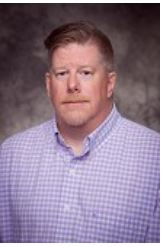 Dr. Jay Self, Professor of Communication, Chair of Department of English, Truman State University. B.A., Communication, Truman State University; M.S. Communication in Human Relations, Texas Christian University; Ph.D. Communication Studies, University of Kansas
Dr. Jay Self, Professor of Communication, Chair of Department of English, Truman State University. B.A., Communication, Truman State University; M.S. Communication in Human Relations, Texas Christian University; Ph.D. Communication Studies, University of Kansas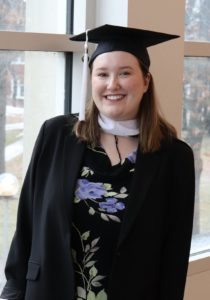
Dr. Self teaches courses in rhetorical theory and political communication. His research interests lie at the intersection of rhetoric, politics, and satire. He has published research on The Daily Show and presidential debate negotiation. Currently, he is the faculty advisor to ΛΠΗ, the national communication honor society, and UpChuckles, Truman’s stand-up comedy collective.
Professor Kathryn Hammock, Educator, Columbia Public Schools
Bachelor of Arts in Communication. Truman State University;
Master of Arts in Education, emphasis in Speech & Theatre. Truman State University
Grow it • Cook it • Preserve it
Plant it, pick it, plate it. You’ll learn to cultivate fruits, vegetables, mushrooms, and backyard poultry, then turn harvests into meals. Try preservation methods like fermentation, drying, and canning, and visit local sustainable farms along with a guided wild-mushroom forage. You’ll leave with hands-on food skills from soil health to safe storage and a serious boost in kitchen confidence.
Instructor
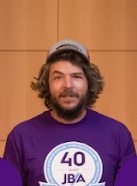 Dr. Bob Johnson, Assistant Professor of Agricultural Science, Tuman State University
Dr. Bob Johnson, Assistant Professor of Agricultural Science, Tuman State University
Dr. Bob received a B.S. in Soils, Environmental, and Atmospheric Science from the University of Missouri-Columbia, and shortly thereafter co-founded the Columbia Center for Urban Agriculture. He went on to graduate school from the University of California-Davis completing an M.S. in Horticulture and Agronomy in 2014 and a Ph.D. in Plant Pathology in 2020. At Truman State University, he teaches classes in Soils and Plants among others. His research focuses on mycology and diversified farming practices.
Field and Lab • Missouri Ecosystems • ID Skills
Meet the organisms that run the planet, from ponds and prairies to forests. You’ll collect and examine live and preserved specimens, learn how biologists identify groups, and explore how these organisms live. Regular field trips, including one to the St. Louis Zoo, bring the science to life while lab time sharpens your observation and note-taking. Come curious and leave seeing nature in high definition.
Instructor
Dr. Chad Montgomery, Professor of Biology, Truman State University. B.S., Northeast Missouri State University; M.A., University of Northern Colorado; Ph.D., University of Arkansas.
Paint • Print • Fiber Arts
If you love making things, this is your studio. You’ll experiment with painting, printmaking, and fibers, mixing techniques to create original, mixed-media pieces. Along the way you’ll explore composition, concept, and process, building a small portfolio that blends traditional craft with contemporary ideas. Expect messy hands, bold choices, and growing confidence in your creativity.
Instructor
Professor Megan Hines, Instructor of Art, Kirksville High School, Truman State University Visiting Faculty
M.A. Art Education, Boston University, Boston MA; B.A. Studio Art, Graceland University, Lamoni, IA
Professor Hines is a Missouri Art Education Association council member, having also exhibited and won several awards. She has been selected as the Missouri Secondary Art Educator of the Year and presents at state art education conferences annually. With a BA in studio art, her concentration was in painting and photography. Recently, she has been working in fibers and has been the recipient of numerous other awards and juried exhibits. Prior to working in the Kirksville community, Professor Hines has served as an adjunct art instructor for Graceland University, Indian Hills Community College, and North Central Missouri College.
Mandarin Basics • Culture and Food • Film and Hands-on
Step into Mandarin through everyday conversation, characters, and an immersive tour of Chinese culture. You’ll practice pronunciation, write characters, and pick up useful phrases while exploring film, dramas, social media, calligraphy, paper cutting, and cuisine. Whether you’re brand new or have a little background, you’ll gain practical language skills and a deeper understanding of China’s rich traditions.
Instructor
Dr. David Wen, Associate Professor of Chinese, Truman State University
Ph.D. in Second Language Acquisition, University of Hawai‘i
M.A. in Linguistics & Applied Linguistics, Guangdong University of Foreign Studies, China
M.A. in Educational Innovation, Technology, & Entrepreneurship, University of North Carolina, Chapel Hill
Dr. Zhijun (David) Wen joined the Department of Classical and Modern Languages at Truman State University as an Assistant Professor of Chinese in August 2019. Dr. Wen has researched second language (L2) acquisition from a psycholinguistic perspective. He is interested in Chinese linguistics, Chinese sentence processing, creativity in language teaching, L2 pedagogy, L2 sentence processing, and learning sciences. He is teaching and developing courses on the Chinese language, Chinese culture, and Chinese linguistics. He taught Chinese in Hawaii for nearly 5 years and has recently proposed a creativity-based language methodology, which incorporates the latest research findings from second language studies and learning sciences. This method allows students to learn and use the language simultaneously. It uses advanced technologies such as augmented reality and virtual reality to create contextualized, immersive, interactive, and project-based language learning environments. He hopes to offer a whole new experience to learners of Chinese to ensure they build strong skills in Chinese at the fastest possible speed.
.
Code Games • Build Visuals • Think like a Computer Scientist
Learn programming by making things you can play. You’ll design simple games, animate graphics, and use code to bring characters and worlds to life. Along the way you’ll explore algorithms, data types, logic, and control structures and see how math fuels creativity. Finish with a small portfolio that shows both your technical skills and your imagination.
Instructor
Dr. Kafi Rahman, Associate Professor of Computer Science, Truman State University
B .Sc., Khulna University, Khulna, Bangladesh, M.Sc., University of Ottawa, Ottawa, ON, Canada, P h.D., University of Ottawa, Ottawa, ON, Canada
Photoshop and Illustrator • Digital Creativity • Portfolio Build
Blend sketchbook energy with professional design tools. You’ll create posters, postcards, and maps using Adobe Photoshop and Illustrator, learning the basics through tutorials and then applying them to original work. We’ll use scanners, cameras, and high-quality printing to take ideas from rough to polished. You’ll leave with a digital and print portfolio you can keep building on.
Instructor
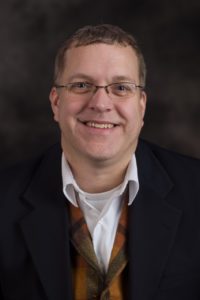 Professor Matthew Derezinski, Professor of Art, Design Program, Truman State University
Professor Matthew Derezinski, Professor of Art, Design Program, Truman State University
B.F.A., Visual Communications, Kansas State University; M.F.A., Visual Communications, Kansas State University
As a designer, Derezinski works in many areas of Visual Communication from print, web, motion and animation. In past few years my work has been directed towards photographic manipulated imagery. This work incorporates layers of textural and organic imagery that draws upon his interest in decaying architecture, nature and the Mid-Western landscape in which he lives.
DNA to Traits • Bioethics • Real Lab Work
What makes you who you are? Start with DNA. Extract it from strawberries, modify bacterial genes, and explore your own genetic data. You’ll learn heredity basics, how genes build living things, and how tools like gene editing are changing medicine. You’ll also discuss the ethics and laws behind genetic information. Expect hands-on biotech, clear explanations, and big questions explored with care.
Instructor
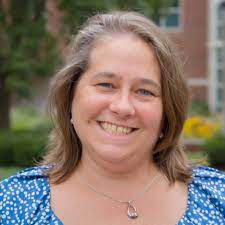 Dr. Sarah Berke, Assistant Professor of Biology, Biology Department, Truman State University.
Dr. Sarah Berke, Assistant Professor of Biology, Biology Department, Truman State University.
B.A., Biology and Psychology, Augustana College, Rock Island, Ill.; Ph.D., Neuroscience, University of Iowa, Iowa City, Iowa
Fitness principles • Exercise planning • Nutrition basics
Move, measure, and understand your body better. You’ll participate in a variety of cardio, dance, and strength activities, complete fitness testing, and build effective training plans using the FITT principle. We’ll connect movement to nutrition, hydration, and health science while exploring how culture and history shape dance and exercise. The goal is to develop habits that lead to a lifetime of physical activity while developing mental and social well-being.
Instructor
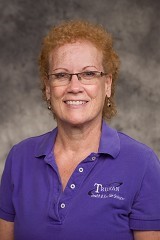 Professor Melody Jennings, Instructor in the Health and Exercise Sciences, Truman State University
Professor Melody Jennings, Instructor in the Health and Exercise Sciences, Truman State University
B.S., Physical Education, Truman State University; M.A., Teaching of Physical Education, Truman State University
Professor Jennings teaches several classes in Exercise Science including Curriculum & Instruction in Physical Education, Fundamental Movement and Tumbling, Rhythmic Activity and Dance, Introduction to Exercise Science, Lifetime Fitness and Conditioning, Health & Wellness Psychology and numerous dance electives depending on the semester. Professor Jennings also sponsors Momentum Ministry, and serves on two scholarship awarding committees. Beyond life at Truman, Professor Jennings owns and operates the Melody’s School of Dance & Tumbling in Kirksville.
Collaborative skills • Confidence with Outdoor Activities• Personal and Group Challenges
Lead with your actions and your backpack. You’ll build teamwork and problem-solving skills through hiking, canoeing, fishing, archery, golf, tennis, and inclusive group challenges. In both classroom prep and field sessions, you’ll practice communication skills, risk awareness, and positive leadership characteristics. The outdoors is our lab, and your growth is the project.
Instructor
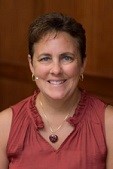 Dr. Julene Ensign, Truman State University Department Chair, Associate Professor of Exercise Science
Dr. Julene Ensign, Truman State University Department Chair, Associate Professor of Exercise Science
M.A.E., Physical Education; B.S., in Kinesiology, University of Illinois; M.S., Therapeutic Kinesiology, University of Illinois; Ph.D., Kinesiology Pedagogy, University of Illinois
Dr. Ensign teaches courses related to Truman’s MAE in Physical Education. She holds a PhD in Kinesiology Pedagogy from the University of Illinois as well as a K-12 Physical Education Teaching License and a Personal Training Certification. Julene’s primary line of research focuses on the socialization, efficacy, and teaching performance of beginning physical educators. Outside of work, Julene enjoys spending time with her family, golfing, biking, and rooting for the Green Bay Packers.
Puzzles • Real-World Modeling • Infinity and Paradox
This is math for the curious. Solve brain-bending puzzles, spot patterns, and model real situations like bungee jumps and rocket launches using data you collect. Then explore infinity, paradoxes, and the surprising ways math meets art. If you’ve only known math as tests and formulas, this course will change the way you see it and maybe the way you see the world.
Instructor
How Brains Work • Real Experiments • Model Organisms
Be a scientist of the nervous system. You’ll learn what neurons do and watch them communicate, form hypotheses, and test them using advanced classroom physiology setups. Experiments use safe methods with humans, worms, and flies, just like professional labs. You’ll get a clear lab book, steady guidance, and the excitement of discovering how brains power movement, thought, and emotion.
You only have 3 main jobs: pay attention, ask questions, and have fun!
One last note: this lab has LOTS of information that may be new to you. Don’t worry! We will go over everything in class. On day one, you’ll get a copy of a lab book with basic information about our experiments.
Instructor
 Dr. Brett Berke, Associate Professor of Biology, Truman State University
Dr. Brett Berke, Associate Professor of Biology, Truman State University
B.S., Electrical Engineering, University of Illinois, Urbana-Champaign; Ph.D., Neuroscience, University of Iowa; Post-Doctoral Fellowship, Yale University
Movies and Music • History Lens • Culture Decoded
What can pop culture teach us about America? A lot. You’ll analyze film, literature, and music to explore sci-fi futures, cowboy myths, and protest anthems, connecting hits and trends to the historical moments behind them. Using the tools of a historian, you’ll uncover what cultural movements reveal about the nation. Your streaming recommendations will never look the same again.
Instructor
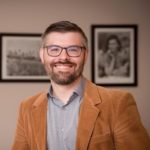 Professor Matthew Kennedy, Lecturer, Truman State University; Instructor of History, Kirksville High School, teaching Dual Credit US History and several electives in American History. He is also an instructor in the Education Department with Truman State University working with future Social Studies teachers.
Professor Matthew Kennedy, Lecturer, Truman State University; Instructor of History, Kirksville High School, teaching Dual Credit US History and several electives in American History. He is also an instructor in the Education Department with Truman State University working with future Social Studies teachers.
B.S., History; M.A.E. History/Social Science, Truman State University
JBA Session II:
Sunday, July 5 – Saturday, July 25, 2026
Game Design • Playtest and Iterate • History to Strategy
Why are some games irresistible? You’ll find out by studying mechanics, math, story, and culture, then designing tabletop games of your own. We’ll analyze classics and modern hits, talk with professionals in game development, visit places where games come to life, and prototype your own designs. By the end, you’ll think like a designer and take home a playable original.
Instructor
Professor Matthew Matheney, Mathematics Educator, Hickman High School; Visiting Faculty, Truman State University
B.S., Mathematics, and M.A.E., Truman State University
Professor Matheney is a math and science educator dedicated to creating a school community where individuals can find the intersection of their talents and the needs of the world. During the school year, Matthew teaches at Hickman High School in Columbia, MO, and spends most of his time making that dream into reality. Outside of education, you might find him pursuing any number of interests (although a good bet would be practicing Tae Kwon-Do, designing board games, writing poetry, or fishing).
13.8 Billion Years • History Meets Science • Big Questions
What can history tell us when we start at the very beginning? In this course, you’ll use historical thinking to explore the entire timeline of existence, from the Big Bang to modern civilization. Guided by Maps of Time by David Christian, we’ll trace major turning points that shaped humanity while drawing on insights from astronomy, biology, geology, and environmental science to fill in the larger story. Through reading, discussion, and research, you’ll discover how connecting history with science helps us better understand where we come from and where we might be headed.
Instructor
Professor Andrew Peake, Truman State University Visiting Faculty
B.A. History, and M.A.E. History/Social Sciences, Truman State University.
Professor Peake was the 2018-2019 Director of the Joseph Baldwin Academy, a former high school social studies teacher and now is an Associate Software Developer, Federal Reserve Bank of St. Louis.
Hands-on Labs • Core Concepts • Discoveries that Shaped Science
See chemistry, don’t just read about it. Through frequent experiments and engaging activities, you’ll explore matter, atoms, gases, and reactions while learning the stories behind landmark discoveries. You’ll practice safe lab techniques, collect data, and explain what you observe. Expect color changes, fizz, and flame (all safely), and a new comfort with how the world’s materials behave.
Instructor
Professor Daniel Floyd, Instructor of Science, Kirksville High School, Truman State University Visiting Faculty
B.S. Chemistry, and M.A.E. Secondary Education, Truman State University.
Graphic Novels • Visual Literacy • Create Your Own
Comics aren’t just for kids; they’re a powerful way to tell any story. Guided by Scott McCloud’s Understanding Comics, you’ll learn how words and pictures work together, read a range of texts like Ms. Marvel, Maus, and Nimona, and discuss what they reveal about identity and culture. Daily work includes reading, writing, discussion, and making your own pages—no art background required.
Instructor
Rachel Brown, Instructor of English, Winnetonka High School, Truman State University Visiting Faculty
B.A. English, Truman State University; M.A.E. English, Truman State University.
Design to Prototype • AutoCAD Basics • Make Useful Things
Turn ideas into objects. You’ll sketch, model, and 3D-print original designs using AutoCAD and fused-deposition (FDM) printers, the same rapid-prototyping process used in engineering labs. From toys to tools, you’ll iterate like an engineer and take home functional prints. It’s creativity with measurements and a lot of fun.
Instructor
Professor Rich Chapman, Project Lead the Way Instructor – Kirksville Area Technical School, Visiting Faculty – Truman State University
B.S. Psychology, Truman State University, M.A.E., University of Missouri, St. Louis
Real Datasets • Tools of the Trade • Insight through Information
Data is everywhere – weather, sports, science, the economy, and more all depend on being able to tell stories from the data we have all around us. In this class, you’ll learn more about how data “thinks.” You’ll collect, clean, visualize, and analyze real world data using several tools like Microsoft Power BI, spreadsheets, and the R statistical coding language to spot patterns and develop insights. Our course-long projects will create interactive dashboards and presentations will highlight what you’ve learned about a student-selected topic. No prior experience needed — curiosity is the only prerequisite.
Instructor
Dr. Scott Alberts, Professor of Statistics, and Chair, Department of Computer and Data Sciences, Truman State University
BA, BS, Music Education and Mathematics, Oberlin College; Ph.D. Industrial Engineering and Management Sciences, Northwestern University
Dr. Alberts teaches statistics and data science classes focused on data storytelling and frequently serves as a consultant and evaluator on larger research projects. He believes that data can be made easy for everyone to understand and should be used to make the world better.
From Silent Films to Zimmer • How Music Shapes Story • Create a Score
Why does a melody make a scene unforgettable? You’ll study how composers from Korngold and Herrmann to Williams, Portman, and Zimmer use melody, harmony, rhythm, and orchestration to cue emotion, time, and place. Field trips include a theater screening and a studio tours, and your final projects include scoring a short film you create during the session and designing a film-music trivia board game.
Instructor
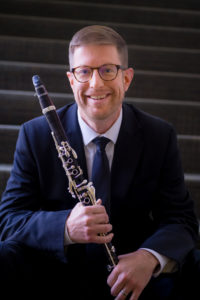 Dr. Jesse Krebs, Professor of Music, Clarinet, Truman State University
Dr. Jesse Krebs, Professor of Music, Clarinet, Truman State University
Krebs has performed guest recitals in Costa Rica, England, Thailand, Ireland, and throughout the United States. He joined the music faculty at Truman State University in 2005. In addition to instructing the clarinet studio and directing the Truman Clarinet Choir, he teaches the Music and Political Protest Junior Interdisciplinary Seminar. Before coming to Kirksville, he was the Clarinet Instructor and the Director of Chamber Winds at Bainbridge College in Georgia, and he served on the summer faculty for the Cultural American Music Program in the Florida Keys. With colleague Dr. Xin Gao, he hosted the inaugural American Single Reed Summit at Truman in 2018. Dr. Krebs frequently performs as a substitute with the Kansas City Symphony and has been featured as a concerto soloist with the North Carolina, Central Florida, and Southeast Iowa Symphony Orchestras.
B.M.E., University of North Carolina at Greensboro; M.M., University of North Texas; D.M., Florida State University
Acting or Backstage Tech • Full Production • Musical Finale
Step into theatre onstage or backstage. You’ll explore theatre history, makeup, rehearsal processes, and tech roles while preparing a full production. This year’s show is “10 Ways to Survive the Zombie Apocalypse – The Musical.” With cheeky narrators, undead mayhem, and songs that stick, it’s the most fun you’ll have saving the world. No experience needed, just an open mind and a willingness to try!
2026 JBA Play
Instructors
B.A., Theatre, Truman State University; M.A.T., Educational Theory, University of Central Missouri

B.A., Theatre and English, Truman State University; M.A.E., Secondary English, Truman State University
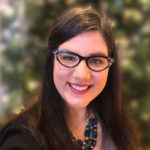
Marketing and Management • Entrepreneurship • Money Smarts
See how businesses really run and practice yourself. You’ll explore management, marketing, finance, accounting, and teamwork while using real tools to plan and operate a small venture. Alongside business topics, you’ll build personal finance skills you can use right away. Think budgets, smart spending, and how to make money work for your goals.
Instructor
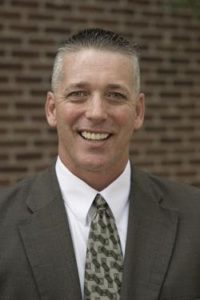 Professor Jim Bergman, Instructor of Business Administration, Truman State University
Professor Jim Bergman, Instructor of Business Administration, Truman State University
B.S., Business Administration, Truman State University; M.B.A., William Woods University
Horror as a Mirror • Disaster Skills • Media Savvy
Zombies and vampires are more than jump scares; they’re cultural clues. You’ll study horror films and literature to see what monsters say about the times that invented them while also learning practical disaster-readiness skills such as crisis management and shelter building. Your final project is a public service announcement that links what you’ve learned on screen to real-world challenges.
Instructor
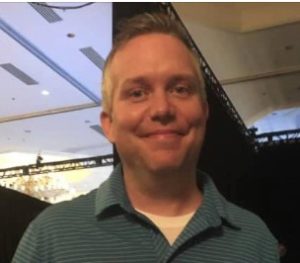 Professor Tyler Unsell, Director of Debate and Forensics, Park Hill School District. Truman State University Visiting Faculty
Professor Tyler Unsell, Director of Debate and Forensics, Park Hill School District. Truman State University Visiting Faculty
B.A., Truman State University. M.A.E., Truman State University.
World Myths • Old Stories, New Takes • Interactive Fun
From Greek epics to Norse sagas and Mayan creation stories, myth is humanity’s earliest storytelling art. You’ll read across cultures, compare gods and heroes, and explore why these tales still shape modern films, books, and games. Expect creative activities including an “Olympic Fantasy League,” a mythology escape room, quick performances, and even a toga tutorial.
Instructor
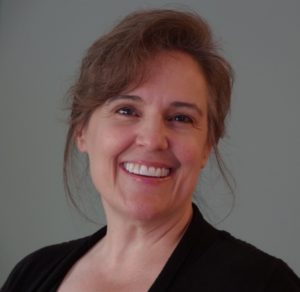 Professor Wendy Doman, English/Spanish Teacher, Kirksville High School, former adjunct English MACC, former consultant Truman State University
Professor Wendy Doman, English/Spanish Teacher, Kirksville High School, former adjunct English MACC, former consultant Truman State University
B.A. English, Brigham Young University; M.A. English University of Kansas
Write • Rehearse • Perform
Make the music you love. You’ll study the history of popular styles, analyze live performances, and most importantly compose, rehearse, and perform as a class band. Prior instrument experience helps but isn’t required. The course ends with a live concert that shows how far a group can go in three weeks.
Instructor
Dr. Curran Prendergast, Director of Bands and Associate Professor of Music at Truman State University
B.A. Music Education, Central College (IA); M.A. in Band Conducting, University of Iowa; Doctor of Musical Arts in Wind Conducting, University of Georgia
Dr. Prendergast is the Director of Bands and Associate Professor of Music at Truman State University where he guides all aspects of the band and graduate instrumental conducting programs. He conducts Wind Symphony I and II, directs the Statesmen Marching Band, and teaches undergraduate and graduate music education and conducting courses.
Train Smarter • Body and Mind • Test What Works
Treat the body like the incredible machine it is. You’ll learn strength and conditioning, anatomy, nutrition, hydration, sports psychology, injury prevention, and wearable technology, then design training that fits the sport and the athlete. You’ll practice assessment, set goals, and build habits that improve performance safely and effectively.
Instructor
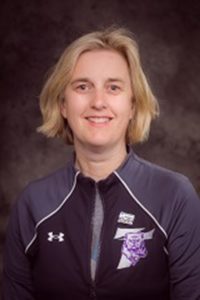 Professor Jorn is from just south of London, England and was originally recruited to Truman as a student to run track and cross country. Now, Professor Liz Jorn is a member of the Health and Exercise Sciences faculty since the fall of 2000. She is the faculty advisor for Cardinal Key National Honor Society, Student Athlete Advisory Committee and students pursuing the Sport and Recreation Management concentration, while also being actively involved in the planning and supervision of the internship/practicum program for Exercise Science. In addition to her roles on campus, Professor Jorn is also the Faculty Athletics Representative representing Truman with the GLVC and NCAA, serving as the chair of the GLVC Steering Committee, and a member of the NCAA Academics Requirements Committee.
Professor Jorn is from just south of London, England and was originally recruited to Truman as a student to run track and cross country. Now, Professor Liz Jorn is a member of the Health and Exercise Sciences faculty since the fall of 2000. She is the faculty advisor for Cardinal Key National Honor Society, Student Athlete Advisory Committee and students pursuing the Sport and Recreation Management concentration, while also being actively involved in the planning and supervision of the internship/practicum program for Exercise Science. In addition to her roles on campus, Professor Jorn is also the Faculty Athletics Representative representing Truman with the GLVC and NCAA, serving as the chair of the GLVC Steering Committee, and a member of the NCAA Academics Requirements Committee.
MA in Education-Exercise Science, Truman State University
BS, Exercise Science, Truman State University
